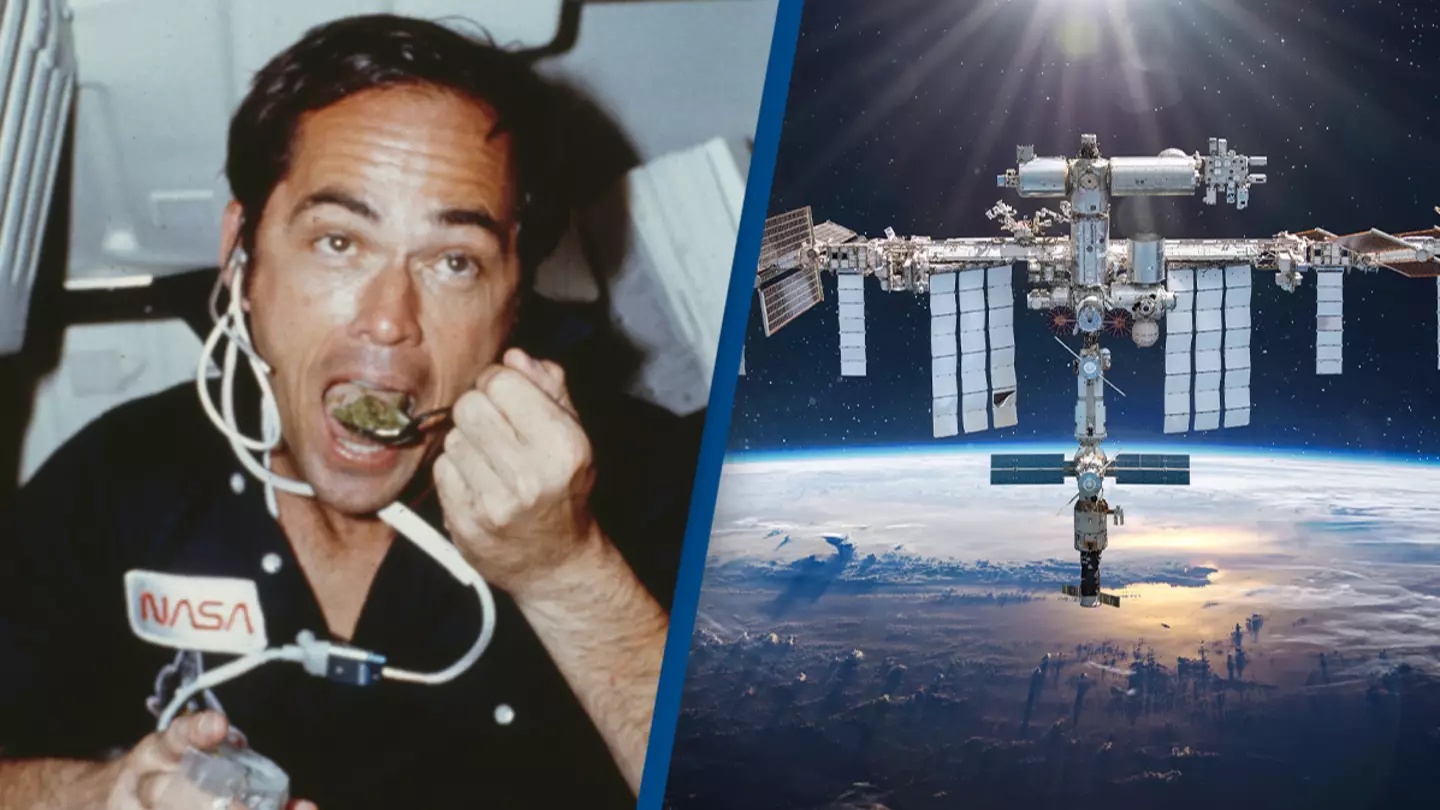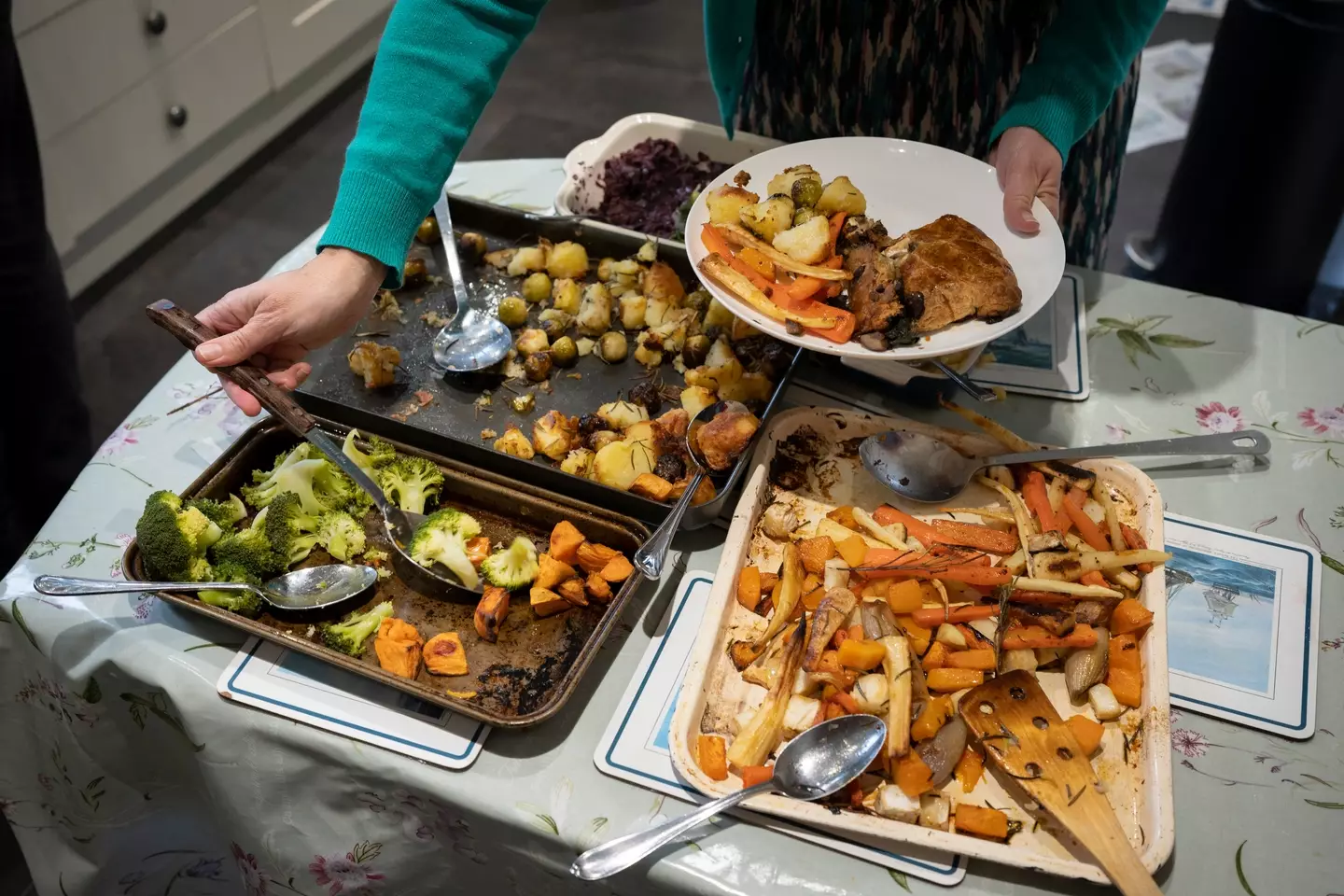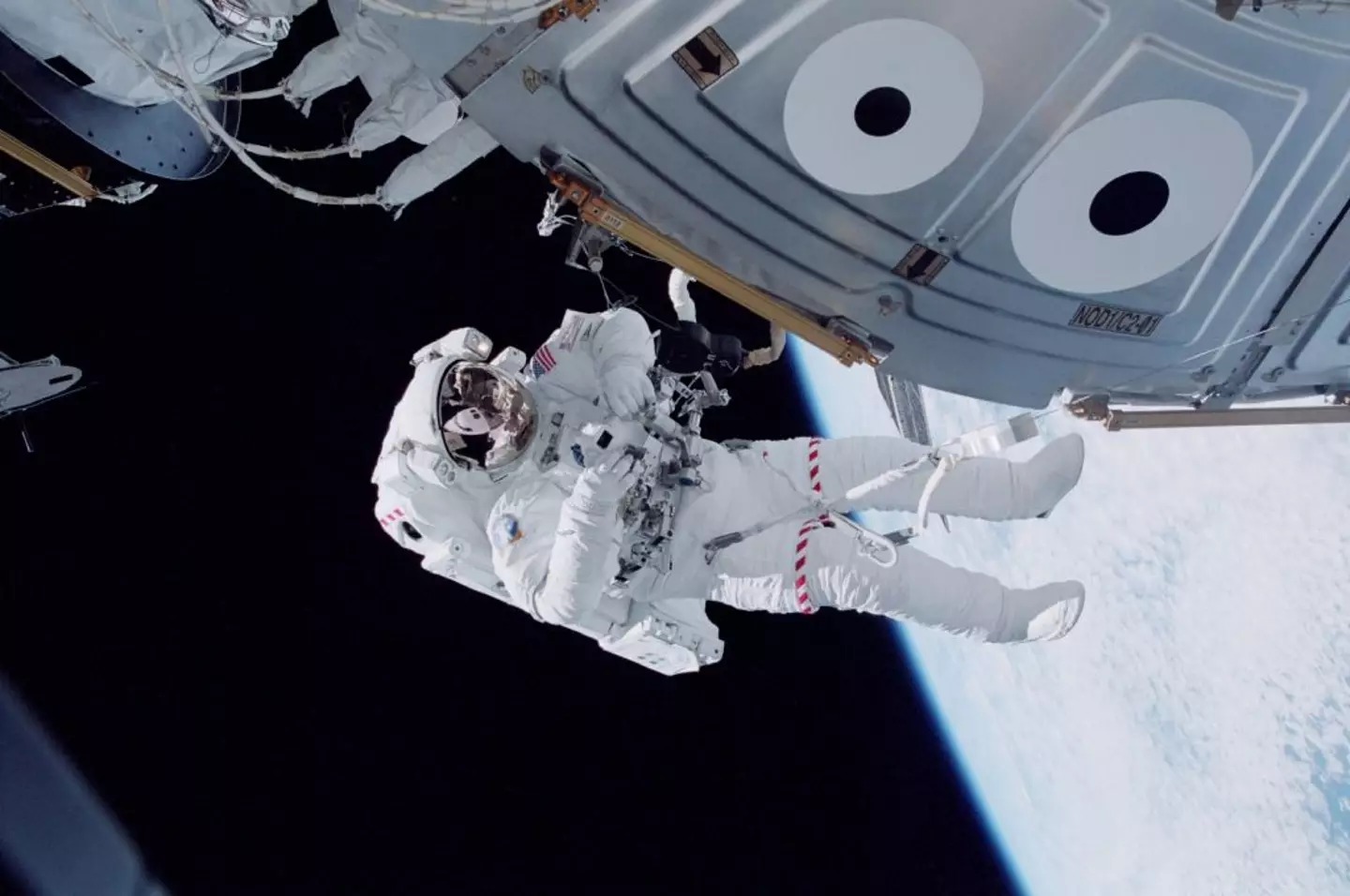
Taking a risk tucking into your festive feast around the dinner table is one thing, but letting rip out in space could actually turn deadly.
Astronauts aboard the International Space Station could be missing out on some Christmas staples while in orbit this year, as some vegetables threaten to pose a 'big bang' and jeopardise the mission.
Space chiefs fear some foods could trigger an outburst of flatulence, which is a real risk to those locked inside an air-tight capsule some 250 miles above Earth.

Advert
This is because farts are flammable and could ignite a fire... or an even larger blast off.
It also means Brussels sprouts are on the naughty list for the seven astronauts who will spend this Christmas orbiting the Earth at five miles per second.
Also 'banned' from the NASA festive menu are baked beans, cabbage, and broccoli, all for the same reason.
The farting issue has long troubled space experts at the US space agency, NASA, to the point where the US Department of Agriculture once employed a 'flatus researcher' to investigate.
A 1960s study of rectal gasses revealed gases, including hydrogen, methane, nitrogen and carbon dioxide, can build up from the food ingested some hours earlier.
These gases are produced by bacteria in the large intestine which break down food into amino acids, glucose and fatty acids.

A rectal catheter was used in the experiment to measure the findings with experts claiming the ideal astronaut would be totally fart-free to completely eliminate the risk of 'sudden fires', or rather at least completely methane-free.
Interestingly, due to our differences in intestinal bacteria, some parts of the population produce no methane at all, which makes them 'attractive' candidates for astronauts.
At the other end of the spectrum, vegetarians are considered a risk when in space, as the cellulose in vegetables cannot be digested, meaning they often produce more gas than people with mixed diets.
The discovery meant astronauts were put on a strict and bland 'space diet', specifically designed to reduce flatulence, with a team of no-emission astronauts being preferred.

Speaking to The Daily Star, technology expert and TV presenter Maddie Moate said: "Sprouts have a tendency to make us quite gassy. And you wouldn't want a crew of astronauts sealed inside the space station feeling uncomfortable because farts are flammable. So the astronauts are forbidden from eating sprouts.’’
In her book, Packing for Mars, author Mary Roach also touched on the subject.
She said at a space nutrition conference that the average person will 'during the peak flatulence period' pass 'anywhere from one to almost three cups of flatus per hour', some six hours after eating vegetables.
She said: "At the high end of the range, that's about two Coke cans full of fart. In a small space where you can't open the window.’’
Topics: Space, Christmas, NASA, Science, Health, Food and Drink